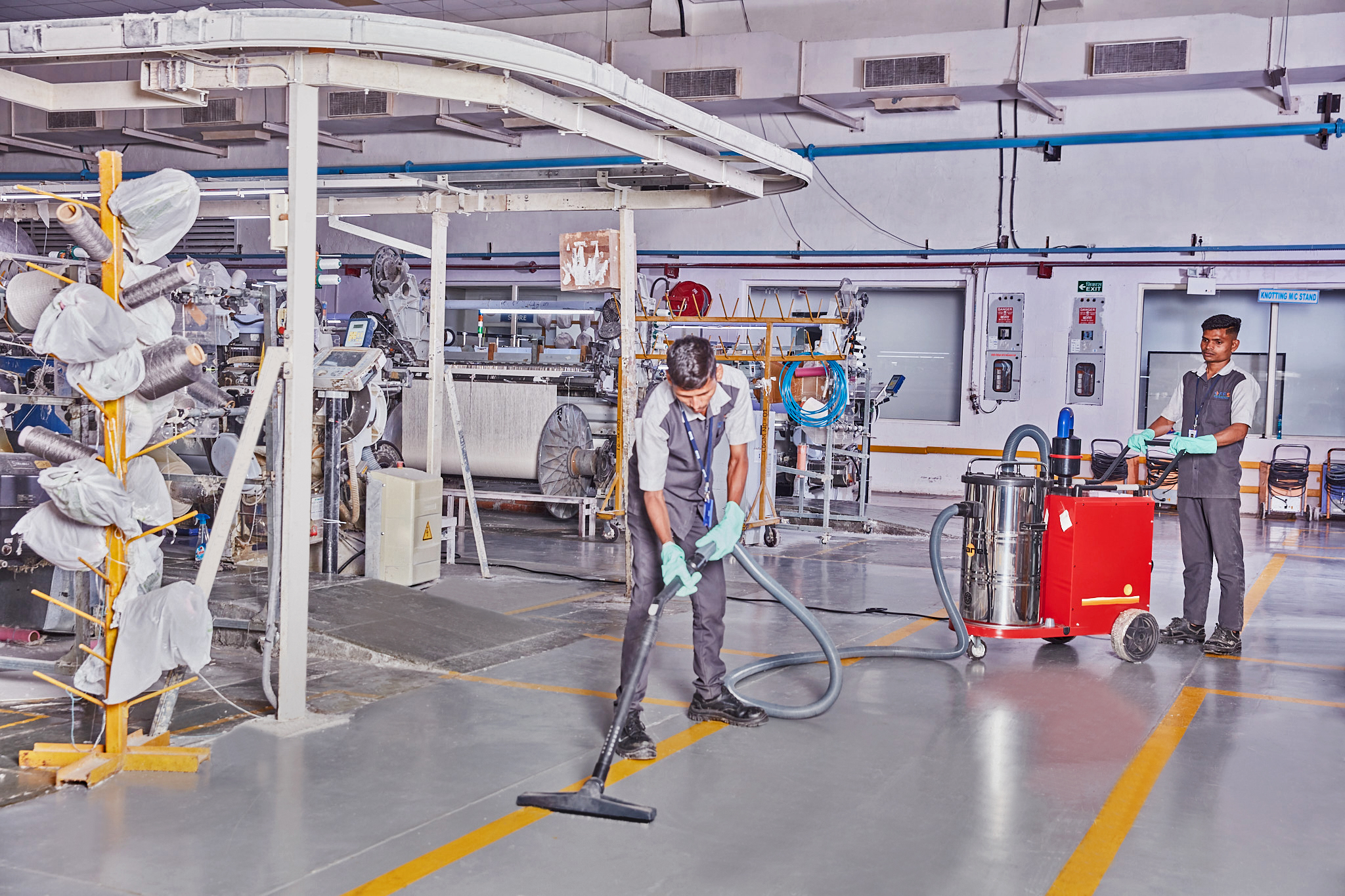In industrial plants, health and safety are not just compliance requirements—they are mission-critical priorities. A single oversight can lead to accidents, operational downtime, penalties, or worse, loss of life. Maintaining a clean, secure, and compliant workplace environment is crucial for protecting both employees and assets. That’s where facility management solutions play a transformative role.
By integrating specialized services, technology, and regulatory know-how, facility management companies ensure that industrial environments operate safely, efficiently, and in full compliance with industry standards and legal requirements. This blog explores how these solutions help enhance health and safety compliance in industrial settings.
The High-Stakes Nature of Industrial Compliance
Industrial plants—ranging from manufacturing units to chemical processing facilities—are complex, high-risk environments. Operations often involve:
- Heavy machinery
- Hazardous chemicals
- High-voltage electrical systems
- Extreme temperatures and noise levels
- Large-scale waste generation
Any lapse in safety protocols can lead to catastrophic consequences. As a result, industries must comply with regulations like:
- The Factories Act, 1948
- OSHA guidelines (Occupational Safety and Health Administration where applicable)
- Environmental Protection Rules
- Hazardous Waste Management Rules
- Fire Safety Codes and Disaster Preparedness norms
Staying compliant with these laws requires not only awareness but also flawless execution—something facility management services are built to deliver.
How Facility Management Companies Ensure Compliance
1. Routine Inspections and Preventive Maintenance
A proactive facility management team ensures routine inspections of electrical systems, fire alarms, emergency exits, HVAC units, and safety equipment. This minimizes risks and ensures that all systems remain functional and compliant.
Preventive maintenance schedules help avoid unexpected breakdowns and safety failures. For instance, regular checks on chemical storage systems can prevent leaks, fires, or explosions.
2. Housekeeping and Industrial Cleaning
Maintaining hygiene in industrial settings is critical. Dust, oil spills, or chemical residue can cause respiratory issues, slips, or contamination. Professional housekeeping services use mechanized cleaning tools and industry-specific chemicals to ensure a clean and hazard-free environment.
Additionally, strict cleaning protocols are enforced in areas like:
- Assembly lines
- Chemical storage zones
- Canteens and restrooms
- Air filters and ducts
3. Waste Management and Hazardous Material Handling
Industrial plants generate a mix of solid, liquid, and hazardous waste. Improper disposal can lead to environmental violations and health hazards. Facility management solutions implement compliant waste segregation, safe disposal practices, and documentation, ensuring alignment with:
- Hazardous Waste Rules
- Bio-Medical Waste Management Rules
- Local municipal and environmental norms
Moreover, some integrated facility management providers also offer recycling and sustainability programs that contribute to ESG goals.
4. Fire Safety and Emergency Preparedness
Every industrial facility must have a functional fire detection, suppression, and evacuation system. Facility managers:
- Conduct periodic fire drills
- Inspect fire extinguishers and sprinklers
- Maintain clear evacuation routes
- Train employees in emergency response
- Coordinate with local fire departments
Facility management companies also assist in creating and updating Fire Safety Plans and Disaster Management protocols as per legal standards.
5. Workplace Safety Training and Awareness
An educated workforce is a safe workforce. Leading facility management companies conduct on-site training sessions to ensure that employees:
- Understand safety signage
- Use PPE (Personal Protective Equipment) properly
- Know how to respond in emergencies
- Follow SOPs in high-risk zones
Digital tools like e-learning modules, safety dashboards, and compliance alerts help reinforce learning and improve adherence.
6. Air and Water Quality Monitoring
Maintaining air and water quality is not only a health requirement but also a regulatory obligation. Facility management teams monitor:
- Indoor air quality (IAQ)
- Ventilation systems
- Industrial emissions
- Potable and wastewater quality
They also maintain and service equipment like air purifiers, scrubbers, and ETP/STP (Effluent/Sewage Treatment Plants) to ensure compliance with environmental norms.
7. Digital Compliance and Reporting Tools
Modern facility services management integrates software tools to manage compliance records, audit trails, and incident reporting. These systems:
- Track inspections and maintenance
- Generate real-time compliance reports
- Alert for license renewals or non-compliance risks
- Provide data for internal audits and third-party inspections
Platforms like SILA Connect offer centralized visibility across multiple locations, enhancing oversight and decision-making.
The Role of Integrated Facility Management (IFM) in Industrial Settings
Integrated Facility Management (IFM) combines all services—technical maintenance, soft services, security, sustainability, and compliance—under one umbrella. This ensures:
- Fewer vendors and better coordination
- Real-time compliance tracking
- Cost optimization and faster response times
- Consistent standards across locations
For large industrial players with multiple plants across India, IFM providers ensure that all facilities adhere to a single standard, simplifying audits and reducing legal risk.
Benefits of Facility Management in Industrial Compliance
| Benefit | Impact |
| Reduced Incidents | Lower risk of injuries, accidents, and shutdowns |
| Regulatory Alignment | Avoid fines, legal issues, and license suspensions |
| Employee Health & Morale | Safer environments improve retention and productivity |
| Operational Continuity | Preventive maintenance ensures fewer disruptions |
| Brand Reputation | Demonstrating compliance builds trust with clients and authorities |
Industry Use Cases
Pharmaceutical Plants
Require GMP (Good Manufacturing Practices) compliance, sterile cleaning, and precise air quality control—managed by trained FM teams.
Chemical Manufacturing Units
Handle volatile materials where spill response, containment protocols, and fire safety are crucial.
Automotive and Engineering Facilities
High-movement areas need machinery maintenance, slip-resistant flooring, and equipment safety monitoring.
Conclusion
Health and safety compliance in industrial plants is not just about fulfilling legal requirements—it’s about protecting lives, ensuring business continuity, and safeguarding the environment. Facility management solutions serve as a vital bridge between regulatory frameworks and daily operations, bringing structure, accountability, and proactive safety culture to industrial settings.
With the right partner, companies can not only stay compliant but also lead the way in building safer, smarter, and more sustainable industrial environments.
Looking to enhance compliance, reduce risk, and improve operational efficiency in your industrial facility? Contact us today to explore how our tailored facility management services can keep your plant safe and compliant.
Also Read: Facility Management Solutions: Addressing Challenges in Tier-2 and Tier-3 Cities
FAQs
1. What Are Facility Management Solutions?
Facility management services refer to a comprehensive set of processes and tools aimed at maintaining and improving the functionality, safety, and efficiency of buildings and facilities. These services combine various operations to enhance the performance of physical spaces, ensuring they meet the needs of both occupants and property owners while promoting sustainability and seamless operations.
2. Key Components of Facility Management Solutions
- Hard Services
- Soft Services
- Energy Management
- Space and Asset Management
- Technology Integration
- Security and Surveillance
- Compliance Management
- Workforce Management
3. What are the primary benefits of using Facility Management Solutions?
- Improved Efficiency
- Streamlined operations reduce downtime and optimize resource utilization.
- Cost Savings
- Preventive maintenance avoids costly repairs and energy-efficient solutions lower utility bills.
- Compliance Assurance
- Proper documentation and adherence to regulations reduce legal risks.
4. Who should consider adopting Facility Management Solutions?
- Commercial offices
- Residential complexes
- Industrial facilities
- Healthcare institutions
- Educational institutions
- Retail spaces
About SILA -
A Real Estate platform driven by an entrepreneurial spirit.
Our businesses include Real Estate Services which offer Facility Management, and Real Estate Advisory. Our other business is Real Estate Development. We have a diverse client base in various sectors which include large Corporates, Real Estate Funds, Landowners and Developers.
Over the last decade, SILA has scaled efficiently, managing over 150 million square feet of assets, with over 22,000 employees pan India. The platform is backed by Norwest Venture Partners and Samara Capital Group in our Real Estate Services and Development arms, respectively.
SILA is one of the best property management companies in Bangalore, Mumbai, Delhi, Chennai, Hyderabad, Pune & more.
SILA is among the top facility management companies in India, offering comprehensive Facility management services. As a leading facility services management company, SILA provides tailored FM solutions, including housekeeping services in Bangalore. Leveraging our expertise, we ensure seamless property management for clients nationwide. Whether you require housekeeping agency support or specialized facility management solutions, SILA delivers excellence in every aspect of your Housekeeping services in India, property’s upkeep and maintenance. With a proven track record in Facility Management India, SILA continues to set benchmarks in efficient and sustainable property management.
About Author -

Aniket Sheth
The insightful content in this blog is curated by Aniket Sheth, our esteemed Senior Vice President of Operations. With an impressive professional journey spanning over 13 years, Aniket has held key positions at prestigious brands, showcasing his exceptional leadership skills.
Aniket’s educational background is marked by an MBA from Cornell University, which laid the foundation for his successful career. He began his professional journey at EY in New York, contributing significantly to enhancing and implementing engagements for Fortune 500 companies.
Aniket’s strategic acumen, proficiency in asset management, and forward-thinking innovation have been instrumental in helping companies streamline their operations and achieve substantial cost reductions. His wealth of experience brings a unique perspective to the world of facilities management, making his insights invaluable for businesses seeking operational excellence.


